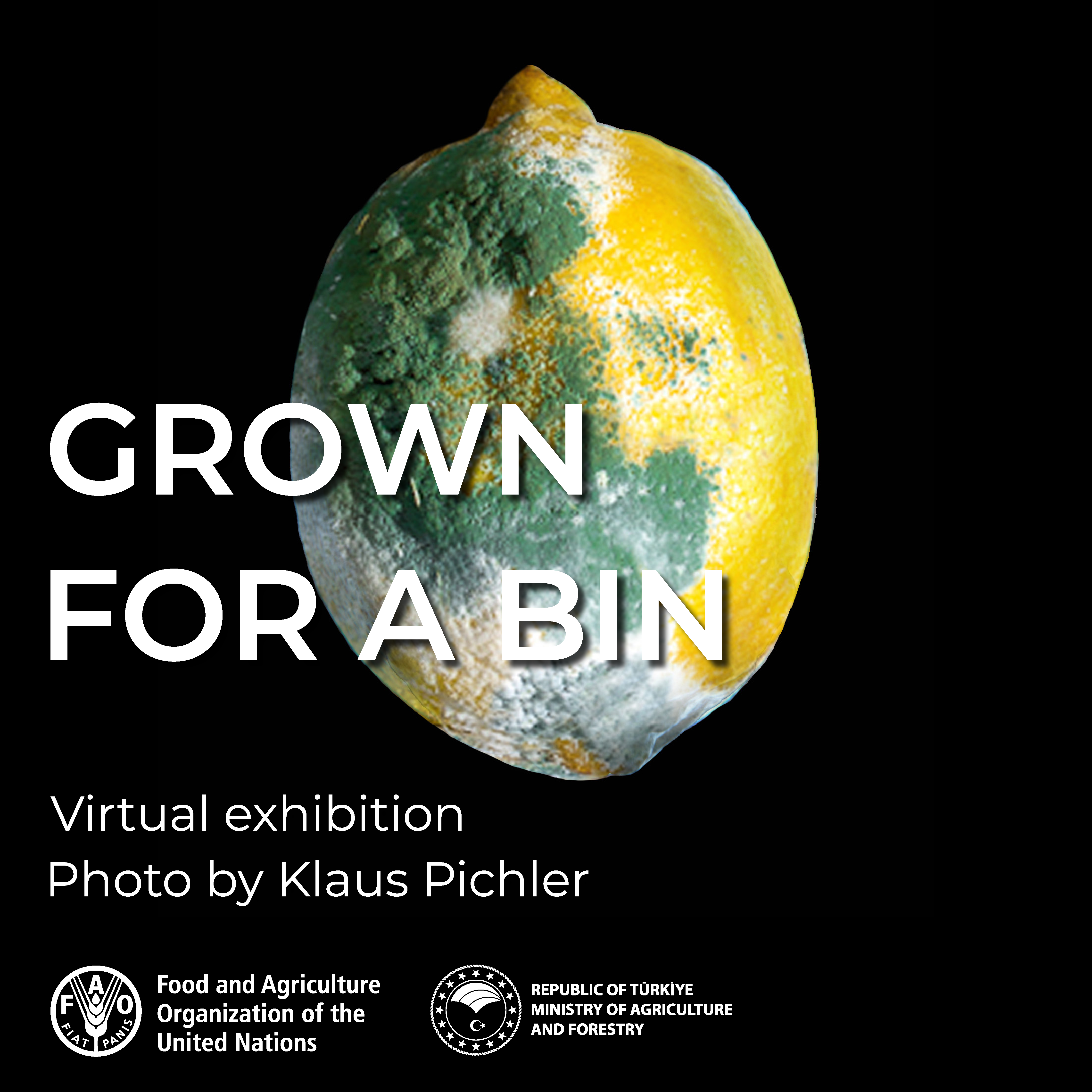GROWN FOR A BIN
PHOTOGRAPHY BY KLAUS PICHLER
VIRTUAL EXHIBITION
OPEN UNTIL 31 MARCH 2023

Did you know that each of us wastes on average 74 kg of food per year? This amounts to 931 million tonnes of food, which could feed millions of people already experiencing hunger every day.
For many people, food waste occurs on a daily basis due to buying or cooking more food than is needed, letting it spoil or taking larger portions than can be eaten.
These habits result in staggering amounts of edible food being thrown away, putting additional strain on natural resources and damaging the environment. Aside from the economic cost, food waste represents a loss of energy, water and soil as well as the labour required to produce, transport and store the unused food – not to forget the forests cleared to make way for farmland.
Food waste also contributes significantly to climate change as decomposing food in landfills emits greenhouse gases.

....
ORANGES / Sort: “Valencia” / Place of production: Citrusdal, Western Cape, South Africa / Transport distance: 15 446 km / Mode of Transport: Ship, Freight vehicle / Cultivation: Outdoor plantation / Harvest time: July to October / Carbon footprint (production & transport) per kg: 0,86 kg / Water requirement (production & transport) per kg: 563 L / Price: 1,32 € per 1 kg
“On first sight,
you think ‘ok that looks nice’, and then you realize what you are looking at.”
-Klaus Pichler
As the title of the exhibit suggests, “Grown for a bin” is an exhibition created by renowned Austrian photographer Klaus Pichler that shows unconsumed food in various stages of decay arranged into an elaborate series of still life photographs. The provocative way that food waste is depicted seeks to draw public attention to the issue and bring about a necessary shift in behaviour.

....
CAULIFLOWER / Sort: Cauliflower / Place of production: Finistere, Bretagne, France / Transport distance: 1 784 km / Mode of Transport: Freight vehicle / Mode of Production: Outdoor plantation / Production time: June to October / Carbon footprint (production & transport) per kg: 0,44 kg / Water requirement (production & transport) per kg: 295 l / Price: 0,99 € per 1 kg
“I
was working on the project for nine months. I wanted it to be provocative and to
approach it from the perspective of the consumer. I wanted to trigger emotions
with this project – to catch people off guard.”
-Klaus
Pichler
Each of the compelling yet repulsive images of food waste is accompanied by a carbon footprint – a history of the journey from field or factory to shelf including all the resources needed for transportation.
The idea of the photo project was sparked by an FAO study on global food loss and waste and its impact on the environment.

....
TOMATOES / Sort: Cuore di Bue / Place of production: Albenga, Italy / Transport distance: 1 035 km / Mode of Transport: Freight vehicle / Mode of Production: Foil green house / Production time: all-season / Carbon footprint (production & transport) per kg: 0,31 kg / Water requirement (production & transport) per kg: 215 L / Price: 8,90 € per 1 kg
Concept and photography: Klaus Pichler
VISIT THE EXHIBITION︎︎︎:
Klaus Pichler (b.1977) lives and works in Vienna. He studied landscape planning and landscape architecture at the University of Life Sciences Vienna and works as a freelance photographer since 2005 with a focus on commissioned work and free artistic projects. His photographic interest is in the overlooked aspects of everyday life, the relationship between people and environment, and the tension between natural science, social policy, and media culture.